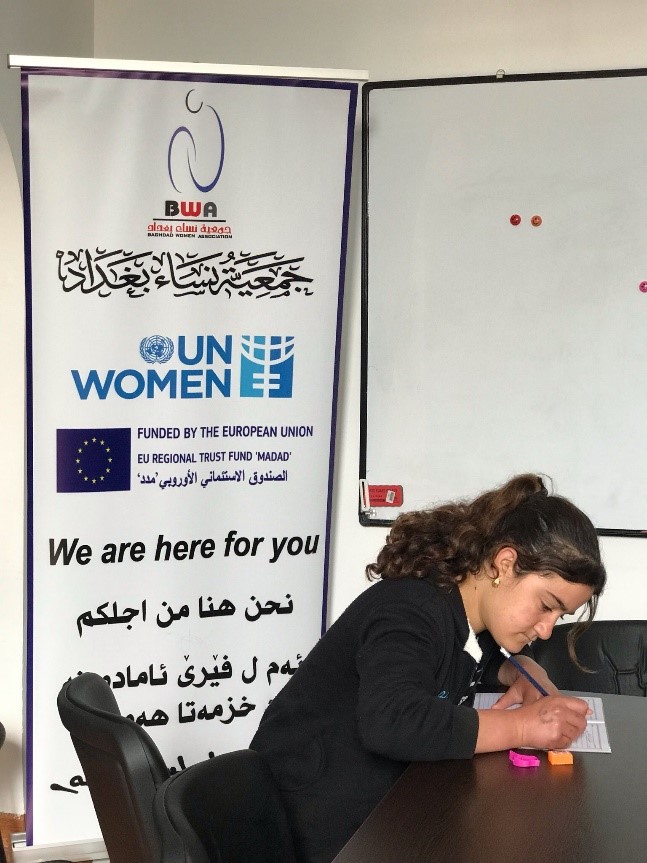Supporting Girls’ Education in Iraq: ‘Now she can write her name with great pride’
Date:

Sherin is a 16-year-old girl from the Shingal district of Mosul, Iraq. When the Islamic State (ISIL) arrived in her village, she and her family were forced to leave home and seek safety in Seiji village in Duhok.
She now lives in a small house with her parents and seven siblings. Her family struggles to put food on the table because both of her parents are ill and they do not have any source of income.
Sherin shares domestic chores with her sisters. She never had the chance to go to school because her community prioritizes boys’ education. Watching her brother do his homework always made her dream of going to school like him. Instead, she had to stay in and do household chores
Unfortunately, Sherin’s story is not unique. Many other girls in Iraq are deprived of their right to education. According to UNESCO, 26.4% of Iraqi women are illiterate, with the percentage believed to be much higher in rural areas, reaching up to 50%.
The social and economic challenges to protecting girls’ right to education in some communities is aggravated by the insecurity that has plagued the country, forcing many families to keep their daughters at home.
As Iraq sets out to rebuild the country and improve the well-being of its citizens, it needs to address gender equality, not only as a fundamental human right, but also a prerequisite for prosperity and peace, according to the United Nations Sustainable Development Goals. Goal Five in particular highlights the need to provide women and girls with equal access to education for nurturing sustainable economies and peaceful societies.
This is why the Baghdad Women Association is determined to help girls and women catch up on years of lost education by offering literacy classes at their centre in Duhok. The course is supported by UN Women and generously funded by the EU Regional Trust Fund in Response to the Syria Crisis (the EU “Madad” Fund) through the “Strengthening the Resilience of Syrian Women, Girls and Host Communities in Iraq” Programme. The Madad programme aims to empower women and girls by offering them life skills and support.
When Sherin learnt about the course, she was very enthusiastic to join. Carrying her books and pencils, she went to class to make her dream of studying like her brother come true.
In the beginning she was afraid, with the pencil shaking in her hands. But with proper follow-up and the encouragement of her teachers, Sherin started to write letters, and then proudly managed to write her full name.
“At first, Sherin was very shy because she had never been to school. But with our encouragement, she gained confidence and now she is excited to learn.” said one of her teachers. “I will never forget when she told me how her heart beat so quickly when she held the pen for the first time.”
Sherin is still learning how to read and write at the centre, along with thirty other girls and women who are determined to catch up on their right to learn. This might seem like a small step, but for Sherin and many others like her, this is a big stride towards empowerment. She hopes to continue her education and help alleviate the hardships of her family.
The regional programme “Strengthening the Resilience of Syrian Women and Girls and Host Communities in Iraq, Jordan and Turkey” is funded by the European Union Regional Trust Fund in Response to the Syrian Crisis.